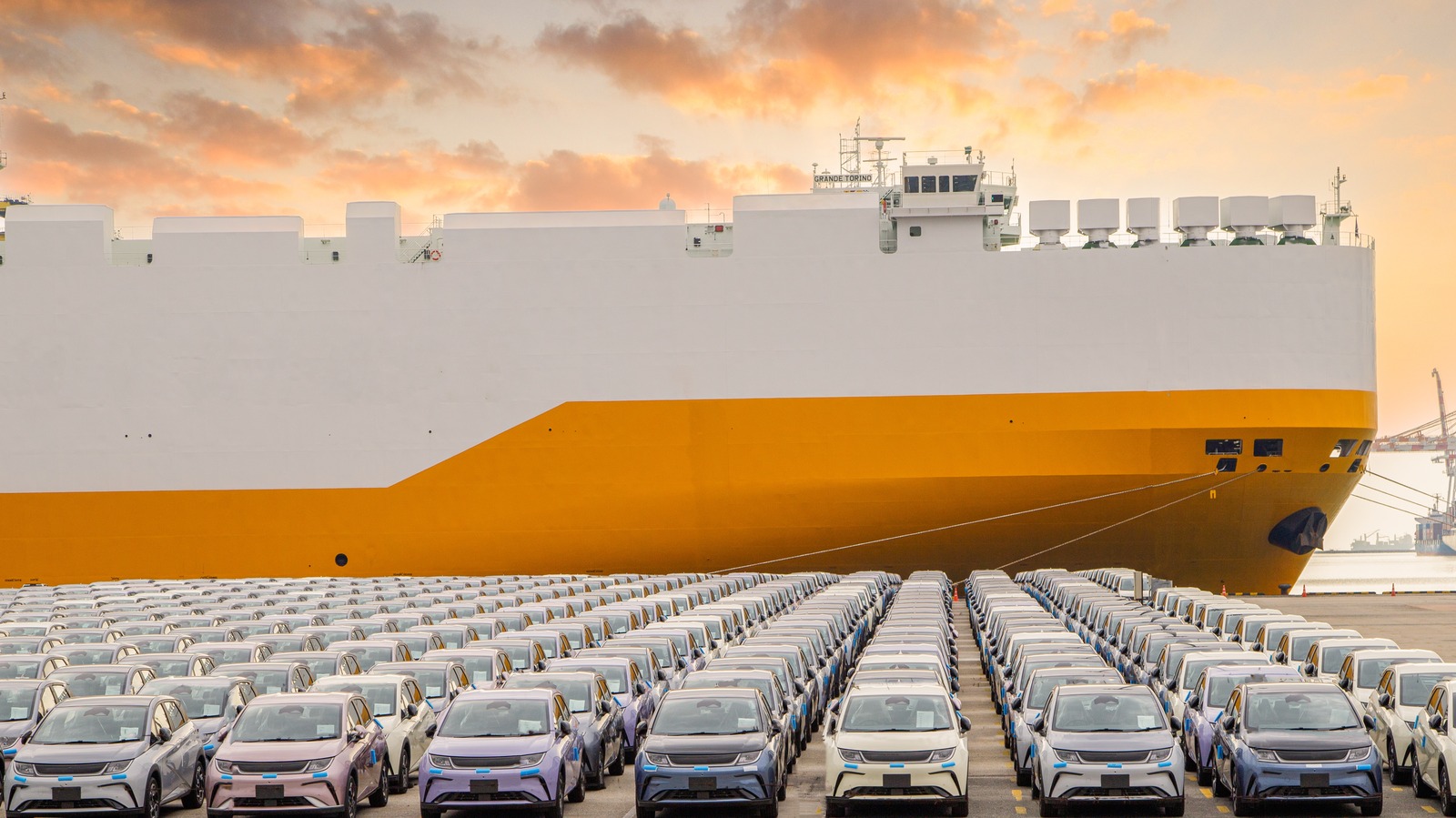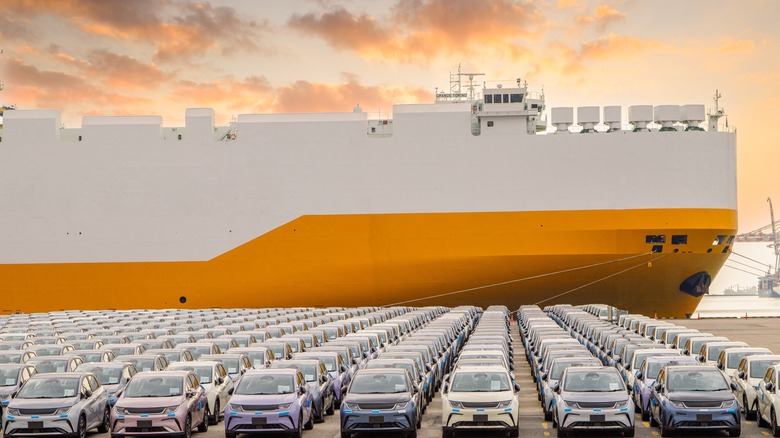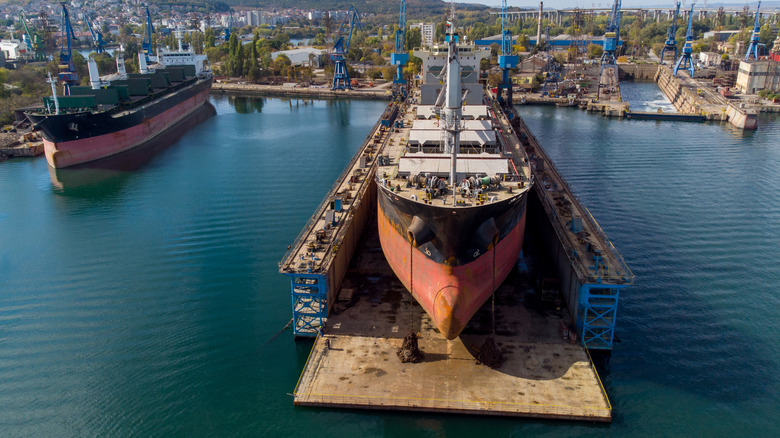Because auto tariffs weren’t enough — or national tariffs, for that matter — the Trump administration is facing blowback from car companies about a new proposal to charge vehicle carrier ships arriving at U.S. ports. Starting October 14, the U.S. Trade Representative (USTR) would levy a fee of $14 per net ton of cargo for ships specifically designed to ferry cars and other vehicles, unless those ships were made in America. This is nominally meant to incentivize shipping companies to buy American made ships and to combat China’s growing dominance in seafaring trade.
This being the Trump administration, the new proposal replaces an old proposal that drew even more blowback, which would have imposed a $150 fee on every single car delivered from non-American boats. That idea is getting yanked before even being implemented. That’s good news for the car industry, which was furious with the idea, per the Financial Times.
However, the new proposal doesn’t look a whole lot better. Several lobby groups, including Autos Drive America and the Korea Automobile & Mobility Association, have publicly warned that even this latest idea will force them to raise prices, which will do damage to the industry as a whole. Ford and even Caterpillar have also raised concerns. And of course, the tariffs remain in effect (and change all the time), adding even further uncertainty to costs. Oh, did I mention that there’s a separate proposal to add additional fees to all large cargo ships that are owned, operated, or originally built by China? Yeah, it’s ugly.
The global car carrier fleet
29 million cars were shipped by sea in 2024, a record. There are 836 car carrier ships in the world, specifically made for moving wheeled vehicles, not containers; the value of that global fleet’s trade is around $600 billion. It’s true that China accounts for a big chunk of that, with 20% of these ships built in the country. But Japan is actually the giant here, accounting for 47% of them. The mighty United States of America, meanwhile, has contributed… 0.1%, or exactly one ship.
Meanwhile, China is building 86% of the car carriers currently under construction. In this sense, it’s not wrong for the American government to worry about China here. In fact, the USTR initially opened up its investigation under the Biden administration. Incentivizing American domestic shipbuilding is a bipartisan effort.
The issue here is twofold. First, these proposed fees will get passed on to the car companies, which of course will get passed on to consumers, punishing you for buying a Kia just because that Kia happened to get over here on a Chinese boat. Second, the $14 per net ton fee is getting applied to all non-American ships, not just Chinese ones. A Japanese car carrier is going to get hit with the exact same fee. So to fight China’s shipbuilding might, we’re going to punish the Japanese, except we’re actually punishing consumers. Winning?
Switching to American ships (which don’t exist)
The USTR claims this is all to incentivize carmakers to use American car carrier ships. That’s a great idea — if there were any. Again, only one is currently in use in the whole world, and according to Autos Drive America, it will be years before the U.S. could even produce enough boats to make a difference. And that’s assuming shipbuilders will even make them in the first place. World Shipping Council CEO Joe Kramek said, “There are no yards in the U.S. that can do it, and the shipbuilding capacity that is in the U.S. is going to hold out for naval contracts because ultimately they’re more profitable.”
The beatings will continue until morale improves. It’s unlikely the car companies will have any American ships to switch to, meaning that if the proposal does turn into reality, the industry is just going to have to eat the costs. Or rather, pass them on to you, meaning Americans will buy fewer cars, hurting the whole industry. Does any of that combat China’s maritime dominance?





